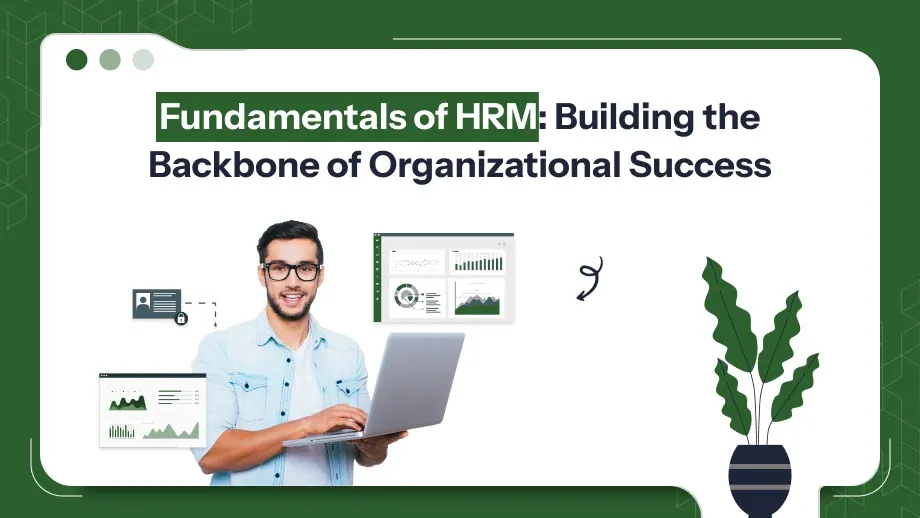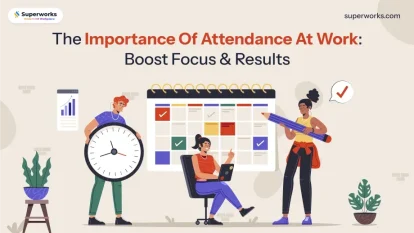
Introduction
Human Resource Management (HRM) is the primary element of any effective business. It is about managing the people in your organization–their skills as well as their performance and happiness–to keep them in line with the organization’s targets. The fundamentals of HRM are based on strategies to help create a productive and engaged workforce analysis, that creates a productive working environment and boosts the success of an organization.
In this article, we will explore the Fundamentals of HRM. We look at its main roles and then highlight its growing role in contemporary companies. This complete guide will explain the fundamentals of human resource management It will also provide insight into the way that HR fundamentals shape successful companies.
What Are the Fundamentals of HRM?
HRM is the term used to describe the method of efficiently managing employees, with a focus on their advancement and contributing towards the objectives of the objectives of HRM.
- Core Objectives:
- Increase employee engagement and satisfaction.
- Optimize workforce productivity.
- Build a positive organizational culture.
- Scope of HRM:
HRM covers recruitment, training as well as performance evaluation, the compensation process, employee relations, and compliance with labor laws.
The fundamentals of HR management make sure that the company isn’t simply an employer, but rather one where the talent flourishes. Knowing the basics of HR is essential to creating a successful workforce. The implementation of HRMS payroll software in India could improve HR processes, boost efficiency, and assure conformity, allowing businesses to manage effectively their employees and meet their business goals.
Key Functions of HRM
The understanding of the HRM functions is crucial to understanding the fundamentals of it.
Recruitment and Selection
The recruiting process involves seeking the best talent, screening them, and then hiring top potential. A properly planned strategy for recruitment is in line with the needs of your organization and guarantees a quality staff.
- Methods to use: job postings employees’ referrals recruiting drives.
- Important: It helps create a skilled and competitive team.
Training and Development
HRM ensures continuous learning through training programs to upskill employees and prepare them for future roles.
- Benefits:
- Enhances employee performance.
- Fosters innovation and adaptability.
Performance Management
The management of performance aligns the goals of employees in line with company goals to ensure accountability and development.
- Instruments: Performance appraisals, goals-setting systems, and feedback mechanisms. frameworks.
Compensation and Benefits
Offering fair compensation, rewards and the right benefits is a vital component of the domestic HRM.
- Importance:
- Improves morale and commitment of employees.
- Helps retain top talent in competitive markets.
Employee Relations
Building positive relationships between management and employees fosters trust and collaboration.
Compliance with Labor Laws
HRM assures compliance with the laws of labor in both countries and safeguards both the company and the employees.
- Examples: Minimum wage rules as well as anti-discrimination legislation, and the safety of workers.
Unlock the potential of your workforce!
Master the fundamentals of HRM to build a productive and engaged team.
Core Principles of HRM
The basic principles of HR management have their roots in the guiding principles of decision-making and implementation of strategy.
Employee-Centric Approach
The employees are the heart of every company. This concept focuses on viewing employees as valuable assets, rather being merely resources. Human Resources practices that emphasize the well-being of employees, their satisfaction as well as professional development result in a happy and productive workforce. In particular, offering comprehensive healthcare benefits, flexible working arrangements, and continual training opportunities demonstrate this employee-centric strategy.
Transparency and Fairness
The building of trust in an organization demands transparency in the policies, as well as the use of fair judgment in decision-making. Communication that is transparent about organizational changes or promotions as well as guidelines ensures that employees feel appreciated and appreciated. The fairness of the selection, evaluation of performance, and reward programs helps reduce biases as well as foster an understanding of fairness between employees.
Continuous Improvement
HRM must adapt to changing workforce needs and market trends in HRM. Continuous improvement is about continuously analyzing and improving HR procedures to improve their efficiency. As an example, using technologies like HRMS software or refining the performance appraisal methods makes sure it is that the HR department stays flexible and current.
Strategic Alignment
HR-related strategies should be in line with the business objectives for the business. This principle ensures that every HR initiative–from hiring and training to performance management–contributes directly to achieving organizational objectives. Strategic alignment can help HR personnel prioritize the resources and activities that have the most impact.
These concepts form the base fundamentals of HRM principles and guarantee that HR strategies are effective as well as durable.
Importance of HRM in Modern Organizations
The fundamentals of HRM fundamentals have an essential part to play in the performance of a company.
Fostering a Positive Work Culture
HRM provides a work environment in which employees are valued and feel respected, leading to greater satisfaction and increased productivity.
Driving Innovation and Agility
HRM fosters a culture of continuous learning and assists in initiatives that adjust to changes in the market.
Promoting Diversity and Inclusion
An effective fundamentals of HRM plan ensures equality and transparency, while also enhancing innovation and decision-making.
Enhancing Employee Welfare
The foundations in human resources management focus on making policies that are geared towards employee wellbeing. To learn more about this issue look at our post about employee welfare in HRM.
Challenges Faced by HR Professionals
The fundamentals of HRM frequently involve dealing with a variety of issues:
- Technology Advancements: Staying current technology advancements AI and robotics.
- Remote Workforce Management: Ensures participation and collaboration across dispersed teams.
- Skill Gaps and Reskilling: Addressing emerging skill requirements in dynamic industries.
- Employee Retention: Combating high turnover rates through strategic retention policies.
Role of Technology in HRM
The advancement of technology has transformed the foundations of HR management. This has made the processes more effective, and based on data.
HRMS (Human Resource Management Systems):
HRMS helps simplify HR functions like tracking payroll, attendance, and the monitoring of performance. If you’re a start-up trying to boost efficiency, consider the best HRMS software for startups to startup companies to make HR simpler.
AI in Recruitment:
Artificial intelligence aids in the process of screening applicants to make speedier and more fair decision-making.
HR Analytics:
The data-driven insight allows HR personnel to make better-educated decisions about the involvement of their employees and the efficiency of their staff.
Cloud-Based HRM Software:
Modern HRM solutions rely on the cloud to increase scalability and access. Discover more about the cloud based HRM software that are cloud-based for maximizing workforce management.
The Future of HRM
The fundamental concepts of HRM adapt to the changing demands of an ever-changing workforce.
Trends Shaping the Future:
Flexible Work Arrangements
The pandemic of COVID-19 has brought to light the necessity of adapting workplaces. Flexible remote and hybrid options are gaining popularity and allow employees to work from home.HRM policies will have to be adapted through investing in collaborative tools for digital work and establishing guidelines that guarantee productivity, and freedom from any micromanagement.
Employee Well-being and Mental Health
Employees’ well-being goes beyond physical health to include mental health and resilience to emotional stress. HRM is focused on implementing holistic wellness programs that provide psycho-health services, in addition to promoting the development of a culture that is compassionate. Counselors’ availability, the ability to hold workshops for stress management as well, and ensuring that you’re able to maintain a balance between your life and work timetable is essential.
Reskilling and Upskilling
As technology continues to evolve and evolve, the demands for work environments are continuously shifting. HR software companies must put a priority on training and reskilling to keep employees up-to-date. Utilizing e-learning platforms to conduct regular training sessions will help prepare workers for challenges to come.
Emphasis on Sustainability
The concept of sustainability is becoming increasingly an essential aspect for the majority of businesses. HRM is required to play a significant element in the integration of sustainability into the corporate culture by promoting environmentally sustainable practices and procedures to reduce waste as well as supporting the initiatives of the community. The alignment of employee-related activities to Corporate social responsibility (CSR) targets is crucial.
HRM as a Strategic Partner
HRM can go beyond the functionalities and become a strategic support for organizational growth. In collaboration with leaders, HR personnel can have an impact on the workforce plan in addition to advancing longer-term objectives for business.
HRM continues to play an essential part in the strategic decision-making process. Find our complete article on the role of HRM in strategic management to get more information.
Conclusion
Understanding the fundamentals of HRM is vital for businesses that wish to be successful in today’s aggressive business world. Concentrating on aligning the company’s strategic plans and
engaging employees and flex HR professionals can add enormous business value.
HRM is not just an organization; it’s the foundation of any effective organization. It ensures that the processes, employees, and performance are in sync for sustainable development matter Whether you’re using sophisticated HR software or just paying attention to the payroll of HRM keeping a firm grasp of the fundamentals of HRM concepts can help your company achieve the success it deserves.
To learn more about payroll management, check out our article on HRM payroll cycle and explore for tailored solutions.






